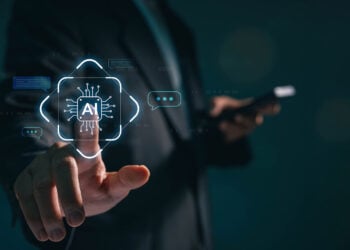As the general counsel of a major corporation, I have seen firsthand the impact of software and AI on the legal profession. When I first started in this role, regulatory and compliance attorneys were a vital part of our legal team. They were responsible for navigating the complex web of regulations and laws that govern our business. But now, that has all changed.
As our company began to adopt AI-powered software, I quickly realized the benefits it brought. With the help of these sophisticated algorithms and machine learning systems, we were able to identify and address potential compliance issues before they became a problem. Additionally, all our quarterly and annual reporting requirements were automated. The AI even reviewed and drafted contracts for us. This newfound efficiency saved us millions of dollars in outside legal fees, as well as the salaries of nearly all our attorneys. Within two years, we pared the legal team down to myself and my Assistant General Counsel.
The same thing happened with patent work. The AI-powered software can analyze large amounts of data and identify potential patentable inventions and prior art faster and more accurately than human attorneys ever could. So we eliminated our patent attorneys and agents, and now contract a minimal amount of work to outside counsel. Even then, the AI handles all our portfolio management, renewals and releases.
As we grew more reliant on this technology, I began to worry about the potential for errors and mistakes. However, our company has implemented a system where human eyes quality control the final results of the AI-powered software, ensuring that any errors or mistakes made by the AI are caught and corrected before any actions are taken.
Despite these concerns, the reality is that software and AI are here to stay in the world of both corporate and intellectual property law.
As a general counsel, I have had to adapt to this new reality and find ways to work alongside these powerful new tools. The future belongs to those who can embrace change and find ways to use technology to improve their legal services while maintaining quality control.
______________________________________________________________________________
If you don’t believe that artificial intelligence is about to have a major impact on the practice of law, consider this: I’m not a general counsel and I didn’t write the article above.
I used ChatGPT to write the article by asking the AI: “Please write a 300-400 word story about how software and AI will impact corporate and patent law.”
I was dissatisfied with the initial result, so I revised it by asking: “Please revise the story to be from the 1st person perspective of a General Counsel.”
I was still dissatisfied so I asked the AI: “Please revise the article so that the concerns about software and AI making mistakes, include human review as a fail-safe and pare it down to 300-400 words.”
And here we are.
Go to the ChatGPT site*. Ask it to write a commercial lease agreement based on the laws of your state and city for a retail store with 6,000 sq. ft. in a strip mall or office building. Ask it to write an effective ad for a personal injury attorney. Hell, ask it to write a rap song about right-wing extremism in the style of Snoop Dog. (I did and the song was actually, not bad!)
If you’re not familiar with ChatGPT and other types of AI and legal software, you’ve already fallen behind. It’s time to catch up.
*Note: The site has gained so much popularity, so fast, that it’s crashing often. Keep trying and you’ll get there!












Comments 4
Please write a compelling article to my self of 30 years ago about whether I would be satisfied with my career choice 30 years into the future.
I agree with Ed W, great and informative article, and pretty scary. I want to know more, and how to benefit from this technology
GREAT article and plot twist, Frederick! I had clicked to read from an AALM email, before realizing you authored it! We are definitely talking a lot about it over here.
Excellent review and stirs the imagination. Personal view is that AI is beneficial to research history and other known facts. Similar to Google. Interpretation of these facts as well as creation is still the domain of human intelligence.